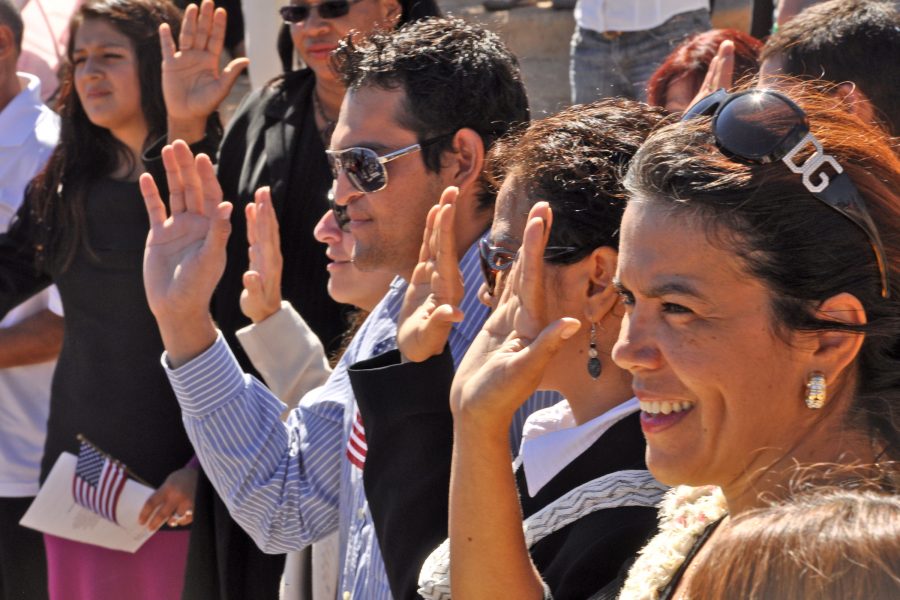

U.S. citizenship carries tremendous privileges, rights and benefits. That's why people will sacrifice so much to immigrate to America and seek citizenship. According to a senior fellow at the Migration Policy Institute, "citizenship is a very, very valuable commodity." If you're a permanent resident, our Citizenship Cost Calculator can show you how much you will save over a lifetime by becoming a U.S. citizen. Most Americans are born on U.S. soil, but for foreign-born individuals there are other ways to become a U.S. citizen.
Table of ContentsIn all, there are four fundamental ways to become a U.S. citizen: citizenship by birth in the U.S., citizenship through derivation, citizenship through acquisition, and citizenship through naturalization. Most immigrants in the United States become citizens through the naturalization process. In fact, nearly one million permanent residents apply for naturalization each year.
Under United States law, any person born within the United States (including the territories of Puerto Rico, Guam, the U.S. Virgin Islands, and the Northern Mariana Islands) is automatically granted U.S. citizenship. There is an exemption for children of parents who are foreign diplomats or members of a sovereign Native American tribe. The Fourteenth Amendment to the U.S. Constitution states that:
"All persons born or naturalized in the United States, and subject to the jurisdiction thereof, are citizens of the United States and of the State wherein they reside."
As most Americans are born on U.S. soil, this is clearly the post common of the ways to become a U.S. citizen. The next three paths address ways foreign nationals can obtain citizenship.
In some circumstances, a child automatically “acquires” citizenship even though that child was born outside the United States. At least one parent needs to be a U.S. citizen at the time of the child’s birth and several other conditions must be met. When this child marries and has children, those children may also acquire U.S. citizenship at birth. The ways a child can become a U.S. citizen through acquisition generally include:
Requires that both parents were U.S. citizens at the time of the child's birth and the parents were married at the time of birth abroad, and at least one parent lived in the U.S., or its territories, or both, prior to the child's birth.
To obtain official documentation from the U.S. government that a person acquired U.S. citizenship through one of the above methods, the applicant must file Form N-600, Application for Certificate of Citizenship. The laws have changed several times over the years. Therefore, you’ll need to research the law that was in effect on the date of the child’s birth (and the parents’ birth, if grandparents were U.S. citizens). Or check your eligibility for free by starting the application on CitizenPath. It can get complicated. If you are unsure or have a complicated situation, seek the assistance of an experienced immigration attorney who can guide you through this process.
 for Children Born Outside the United States”" width="600" height="400" />
for Children Born Outside the United States”" width="600" height="400" />
A child born outside the United States can automatically become a U.S. citizen at birth in a process known as…
When a parent naturalizes, their children (under the age of 18 and living with the parent at the time) may “derive” U.S. citizenship automatically, provided they are also permanent residents. What’s more, a child who gets U.S. citizenship through derivation does not have to participate in a naturalization ceremony. Generally, foreign-born children under 18 automatically acquire U.S. citizenship if they meet these three requirements:
The laws on the automatic naturalization of children have varied over the years. Making a determination if the law applies to you is dependent on the law that existed when your parent’s naturalization took place. Also, citizenship cannot be derived from step parents. Check your eligibility for free by starting the application on CitizenPath. However, seek the assistance of an experienced immigration attorney who can guide you through this process if you have a complex situation or can't find the necessary documents.